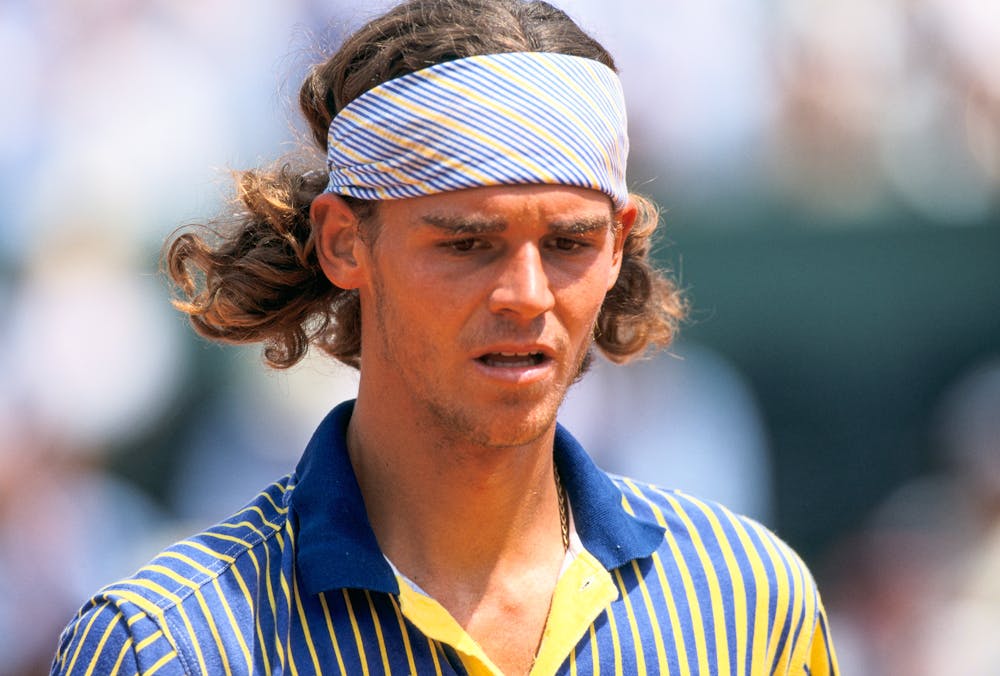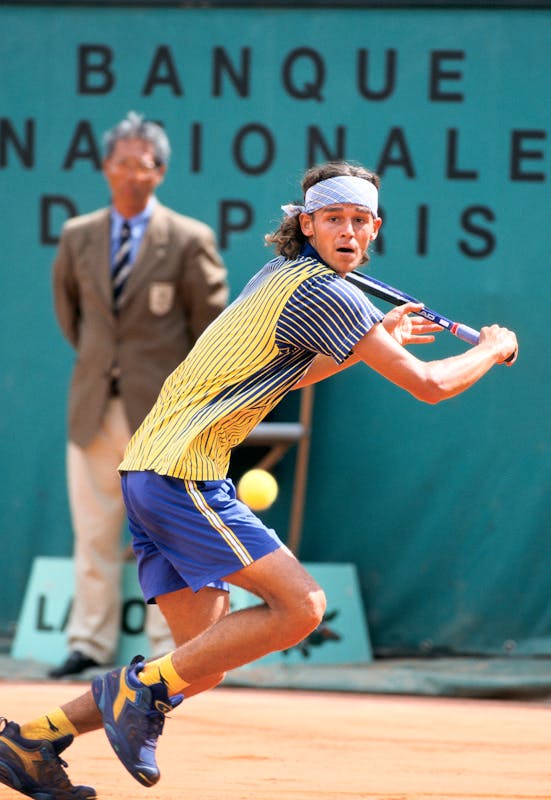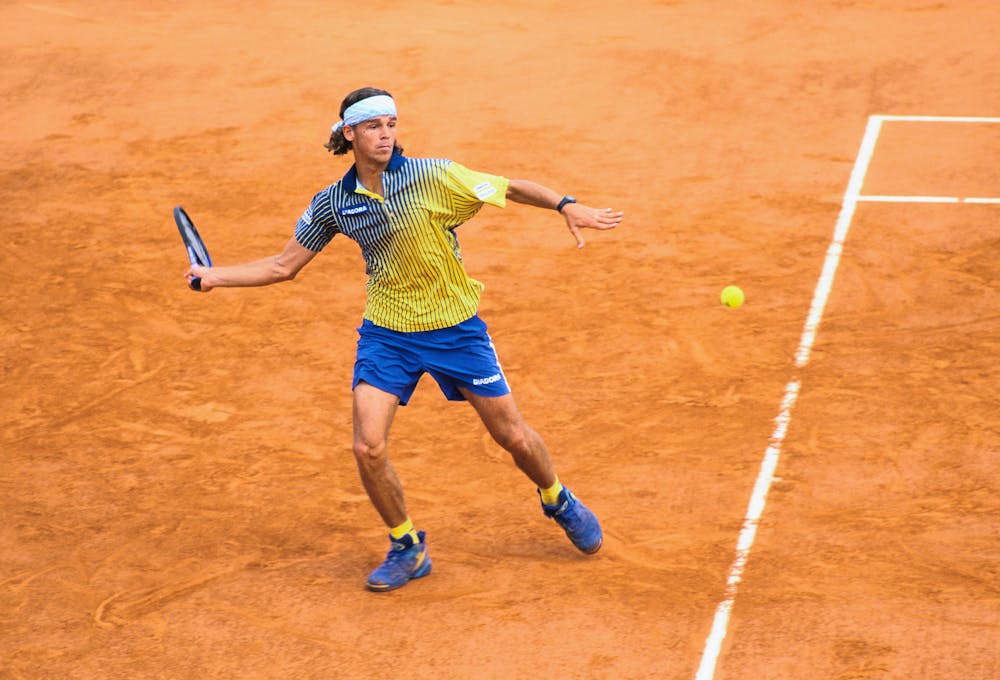Rolandgarros.com invites you to experience the 2020 tournament on the original dates by looking back at some of the most memorable matches from the past, round by round. Today, Saturday 30 May, we go back to the start of an enduring love affair between a charismatic Brazilian and the Parisian crowds: Gustavo Kuerten’s third-round defeat of Thomas Muster in 1997.
One day, one epic match: Kuerten - Muster (3rd round 1997)
Relive this incredible match between Gustavo Kuerten and Thomas Muster at Roland-Garros 1997

The context
Kuerten, nicknamed “Guga,” had already tasted success at Roland-Garros at a young age by winning the boys’ doubles title with Nicolas Lapentti in 1994. After a mediocre run on the clay in Europe in early 1997, the then 20-year-old from the Brazilian seaside town of Florianopolis decided to go back home to compete in the Curitiba Challenger. He ended up winning the title, and arrived at Roland-Garros with a new spring in his step.
Muster, the champion at Roland-Garros two years before and with 40 clay-court titles to his name, had a tough start to his tournament, needing nine sets to overcome German Marc-Kevin Goellner and American Jeff Tarango in the first two rounds. Could the powerful, fifth-ranked Austrian, a decade older than his energetic opponent, stop Kuerten’s momentum?

The match
Played on the legendary ‘Bullring’ - Court No 1 at Roland-Garros - the match pitted the unseeded Kuerten, a tall, lanky Brazilian with a huge smile and curly blonde locks, against a player with an iron will, who had overcome a serious leg injury sustained in a car accident in Miami in 1989 to become a Grand Slam champion and world No 1. The Parisian crowd immediately took to the quirky Brazilian, armed with a topspin-laden, blistering one-handed backhand. After dropping the fourth set, Kuerten looked down and out at the start of the decider and quickly found himself 3-0 down. But he regrouped, and started to dictate the points. On match point, Kuerten produced a backhand lob volley, which Muster failed to put back in court, to clinch a 6-7, 6-1, 6-3, 3-6, 6-4 victory.
What they said
“I was losing 3-0 in the fifth set. Muster was killing me,” Kuerten said in a news conference at Roland-Garros in 2015. “One side to the other, I was like this already, No, I'm done, I'm done. [My older brother] said, Guga, you're not like this, man. Come on. You always fight. You never give up. My brother is very calming, and he suddenly was screaming at me. I said, OK, OK. My older brother. I have to listen to him.”
An hour after his victory, a samba band could be heard playing inside the grounds of Roland-Garros as fans chanted “Gu-Ga! Gu-Ga!” When Kuerten emerged on the balcony to greet fans, he struggled to open a bottle of champagne that had been handed to him.
“I never won a title, that’s why I don’t know how to open champagne,″ he said.
“He deserved to win,” Muster said after the match. “This was maybe my best match of the year on clay, and I still lost it. I need to find a gas station, get the right fuel, and I'll be back next year.”
Match stats
Kuerten’s serve was often under-rated but he was helped by 14 aces.

What happened next ?
After knocking the 1995 champion out in the third round, Kuerten overcame the 1996 winner, Yevgeny Kafelnikov of Russia, in the quarter-finals. He sealed one of the most improbable runs in tennis history when he beat Sergi Bruguera, the 1993 and 1994 champion from Spain, with near-perfect tennis in straight sets to win the title. Kuerten was not only the lowest-ranked champion in Roland-Garros history, he was also the first competitor to win a lower-tier Challenger event followed by a Grand Slam title. His breakthrough was all the more remarkable because Kuerten hadn’t even gone beyond the quarter-finals of any event before Roland-Garros in 1997. Yet he would end up leaving Paris as Brazil’s first Grand Slam champion.
But his stunning victory was no flash in the pan. Kuerten would establish himself as one of the greatest players ever to compete at Roland-Garros with two more victories, in 2000 and 2001. He also won the Masters Cup in 2000 and spent 43 weeks as the world’s top-ranked male tennis player. He retired at Roland-Garros in 2008, having won 20 ATP singles crowns and eight doubles titles.
Muster reached the quarter-finals in Paris in 1998 but his power was waning and he retired a year later. The Austrian attempted a comeback at the age of 42 in 2010 but won just two matches in 25 tournaments and retired for a second and final time in 2011.
 ROLAND-GARROS
18 May - 7 June 2026
ROLAND-GARROS
18 May - 7 June 2026

